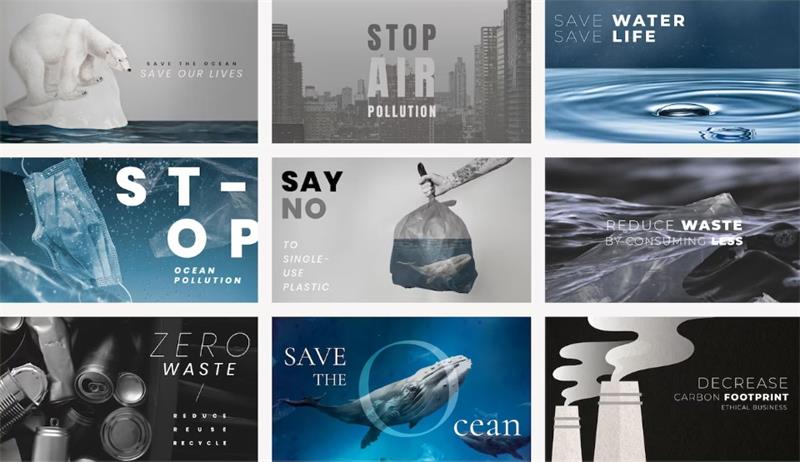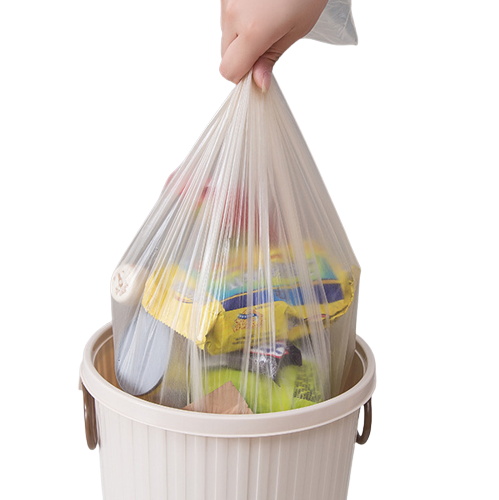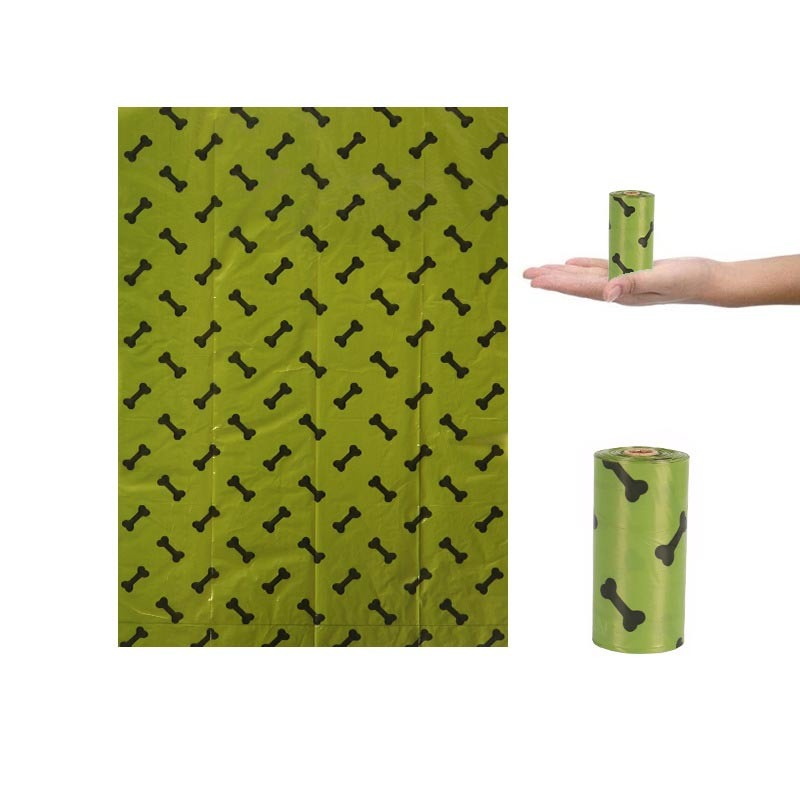Why Choose Degradable Garbage Bags
In today's world, the environmental situation demands our immediate attention. The excessive accumulation of non-degradable plastic waste poses a severe threat to our planet. Plastic pollution harms marine life, contaminates soil, and contributes to air pollution. To grasp the magnitude of the issue, consider the Great Pacific Garbage Patch and incidents of entangled wildlife. Choosing disposable degradable garbage bags is a vital step in combating this crisis.

Eco-Friendly Garbage Bags: Three Sustainable Solutions for Waste Management
By considering these eco-friendly garbage bag options, individuals and businesses can make a positive impact on the environment, contributing to a cleaner and greener future for all.

Biodegradable Garbage Bags
The Biodegradable Garbage Bags are made from a novel bio-based degradable material composed of PLA (Polylactic Acid), PBAT (Polybutylene Adipate Terephthalate), and Cornstarch. This material is fully biodegradable, meaning it can be completely decomposed by microorganisms in the natural environment within 3-6 months, under the conditions of natural composting. The degradation process results in the formation of carbon dioxide, methane, water, inorganic minerals, and humus, without polluting the environment.

Natural Straw Garbage Bags
The Natural Straw Garbage Bags, are crafted using a blend of straw and PE (Polyethylene). These bags exude a gentle and pleasant plant fiber scent, ensuring a healthy and eco-friendly option that is free from allergens. With their straw-based composition, these bags are designed to naturally degrade, promoting environmental sustainability. The use of eco-friendly materials not only contributes to a healthier choice but also facilitates convenient tearing through a perforated design.

Dog Poop Bags
Material: HDPE+EPI Biodegradable Material
Natural Decomposition and Recyclable, Promoting Sustainability and Environmental Friendliness
Smooth Texture: Our Dog Poop Bags feature a smooth texture, providing a comfortable and easy-to-use experience.
With their large capacity and reinforced structure, these bags are thick and sturdy, offering high tensile strength and resistance to tearing or breakage.
At JINYE, the degradable garbage bags possess exceptional strengths that make them stand out. Made from eco-friendly materials like PLA, PBAT, and natural straw fibers, they promote sustainability by reducing plastic waste. These bags efficiently degrade over time, leaving minimal residues. User-friendly features, such as easy tearing and versatile applications, ensure a convenient waste management experience. Join us in choosing JINYE’s degradable garbage bags for their strength, performance, and commitment to a cleaner future.
Benefits of Degradable Materials: A Step Towards Sustainability
Although conventional plastic bags are theoretically degradable, their primary constituent, polyethylene, exhibits exceptional resistance to corrosion and remarkable chemical stability, resulting in a prolonged degradation process of 200 to 700 years in natural environments.”
In contrast, degradable plastic bags utilize high molecular weight materials such as PLA, PHAs, PBA, and PBS. In a composting state, these bags can achieve complete degradation in as little as 6 months, posing no environmental hazards during the degradation process. Moreover, degradable plastic bags can be subjected to secondary recycling for continued utilization.
Difference Between Degradable and Fully Biodegradable Plastics
Photodegradable Plastics: These plastics require exposure to light for degradation. However, in most cases, photodegradable plastics cannot completely degrade in waste management systems or natural environments due to specific conditions and limitations.”
Thermal Oxidative Degradation Plastics: These plastics undergo changes in their chemical structure and eventually fragment as a result of heat or oxidation over time. Although some degradation occurs, achieving complete degradation is often challenging due to specific conditions and limitations.”

Biodegradable Plastics: Composed of plant-based materials such as starch, straw, or PLA+PBAT, biodegradable plastics can be composted along with organic waste, such as kitchen scraps. They degrade into water and carbon dioxide. Additionally, biobased plastics contribute to a reduction in carbon dioxide emissions, leading to a 30% to 50% decrease in petroleum resource consumption compared to conventional plastics.

Choosing Reliable Biodegradable Garbage Bags
Material Composition: Look for garbage bags made from certified biodegradable materials such as PLA, PHAs, PBA, or PBS. These high-quality polymers ensure a faster and complete degradation process, leaving minimal environmental impact.
Third-Party Certifications: Opt for bags with credible third-party certifications, like BPI or ASTM D6400, as they indicate adherence to strict industry standards for biodegradability and compostability.
Eco-Friendly Packaging: Consider brands that utilize sustainable packaging materials and practices. Responsible packaging reflects a commitment to environmental consciousness throughout the entire product lifecycle.
Why Choose Us
Customized Solutions: We offer personalized design options to meet your specific requirements.
Expert Manufacturing: With years of experience in the industry, our skilled professionals ensure top-notch production quality. We employ advanced techniques and utilize high-quality materials to deliver products that exceed expectations.
Dedicated Service: Our commitment to exceptional service sets us apart. We prioritize clear communication, timely delivery, and attentive support throughout the entire process. Your satisfaction is our utmost priority.

Committed to providing you with the best products and services
Common Questions
Most Popular Questions
Common Issues and Questions about Garbage Bags: Find Answers Here!
A: The degradation time can vary depending on the specific material used, but generally, biodegradable garbage bags degrade within 3 to 6 months under proper composting conditions.
A: Biodegradable garbage bags may have a slightly higher cost due to the specialized materials used.
A: Biodegradable garbage bags are designed to break down in composting environments and are generally considered safe for marine life when disposed of properly.
A: Biodegradable garbage bags are designed to degrade into natural byproducts without releasing harmful chemicals into the environment.
A: Yes, biodegradable garbage bags can be used for various types of waste, including food waste, paper, plastic, and other organic materials.

Committed to providing clients with the best products and services
GET A GARBAGE SOLUTION
Choose JINYE for high-quality products, customized to your specific needs, with reliable and timely delivery.

